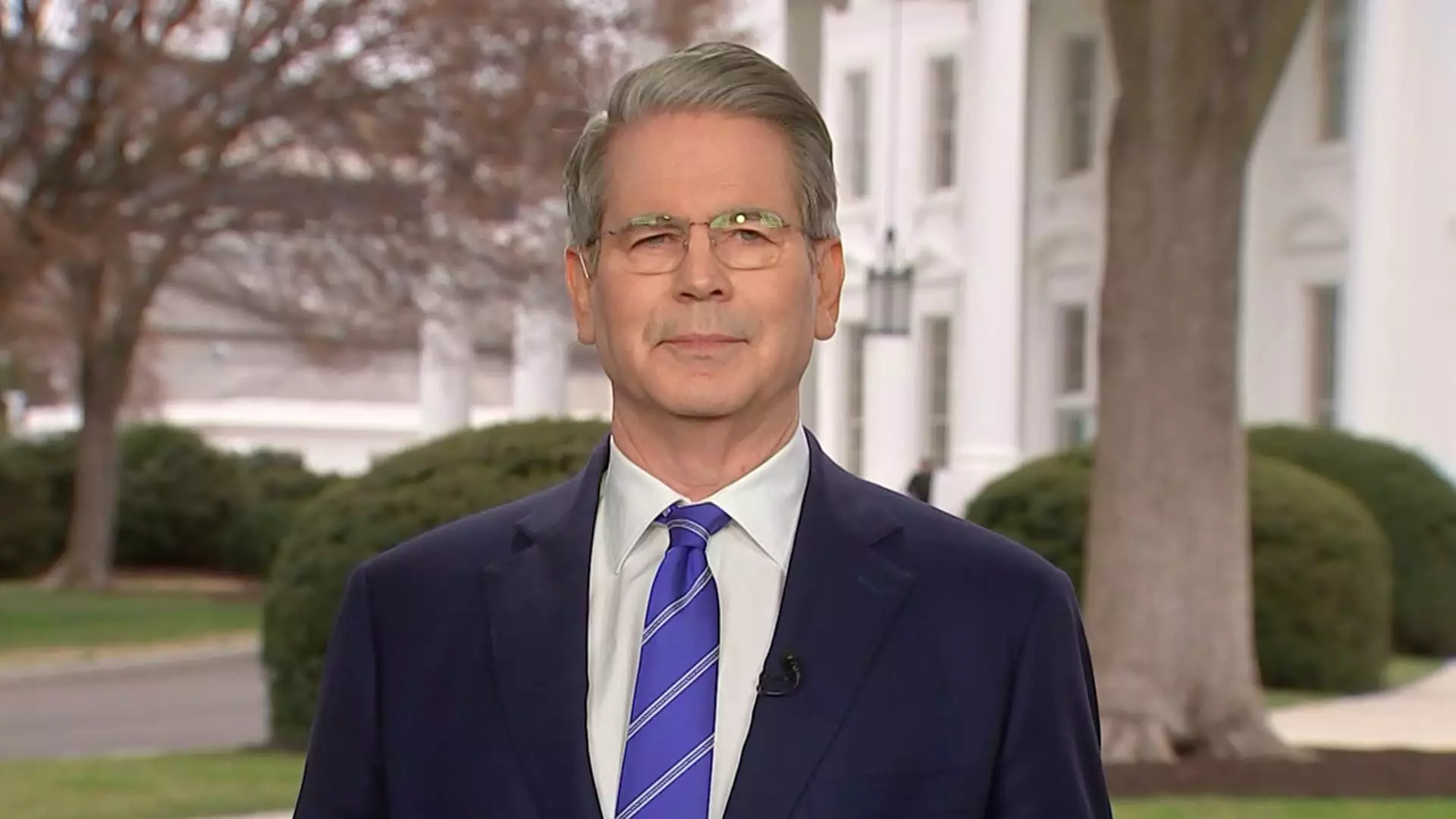Recent comments from Treasury Secretary Scott Bessent reveal a deep-seated belief that the expansive government spending under the Trump administration could have already landed the economy in a financial crisis. While some might view Bessent’s pronouncements as vindicating alarmist perspectives, they deserve a closer examination, especially when considering his assertion that without intervention, a crisis was inevitable. This perspective fuels the danger of scapegoating the previous government’s fiscal policies rather than confronting the more complex realities surrounding our economic structure.
Bessent’s confidence in having averted disaster is admirable but raises uncomfortable questions about the true sustainability of spending levels. His declaration that “everything was unsustainable” reflects a casual dismissal of individual hardships endured by everyday citizens who are significantly impacted by the larger economic policies unfolding in Washington. A looming crisis doesn’t just manifest out of governmental mismanagement; it festers within an inequitable system where average Americans often bear the brunt of financial miscalculations.
Trump’s Focus on Fiscal Responsibility
President Trump’s direct actions toward fiscal responsibility, particularly the establishment of the Department of Government Efficiency, sound promising in theory. Yet, the glaring inconsistencies illustrate a precarious balancing act. This agency, helmed by tech mogul Elon Musk, aims to streamline government operations, ostensibly aligning with conservative ideals of efficiency and reduced spending. However, paradoxically, the burgeoning national debt exacerbated during Trump’s tenure raises eyebrows over the feasibility of such initiatives.
The federal budget shortfall hitting the staggering milestone of over $1 trillion just a month into Trump’s presidency provokes disbelief. If austerity measures aren’t effectively reducing expenditures, what’s the actual incentive behind these initiatives, and are we merely cultivating grounds for further financial chaos? It’s crucial not to take proclamations of stability at face value, especially given the political ambition often tied to economic metrics.
The Volatility Dilemma
Bessent’s analysis of market volatility strikes a slightly optimistic tone, suggesting that market corrections are a healthy symptom of economic vitality. However, this line of reasoning may gloss over the hostility such pullbacks sow among the populace. Investors might view corrections as an integral part of robust markets, but those struggling to make ends meet may interpret them as red flags signaling instability. When the S&P 500 falls into correction territory, it’s not just abstract statistics; it translates to real-world implications for jobs, pension plans, and, notably, the emotional health of the public.
Inflation and escalating tariffs impose critical challenges, further necessitating comprehension and foresight beyond mere market corrections. The cascading effects of these economic policies impact everyday people disproportionately, raising questions about who truly benefits from a pro-business environment. When Bessent suggests that long-term relief can be secured through tax policy, deregulation, and energy security, one must ask if these measures prioritize the wealthy and politically connected over marginalized communities that face the daily onslaught of financial instability.
Addressing Economic Inequality
To move beyond mere crisis aversion, economic policy should directly confront both inequity and accessibility. The disconnection between Wall Street optimism and Main Street despair can no longer be overlooked. As Bessent hints at a sustainable path forward, addressing the widening wealth gap must be paramount. Financial health should not solely hinge on fluctuating market trends and tax incentives that predominantly favor higher-income brackets.
Ultimately, the conversation must shift from complacency in potential rescues to proactive strategies acknowledging that the economy is an ecosystem wherein every failure is felt across a multitude of lines. Bessent’s remarks can serve as a cautionary reminder: a financial crisis avoided today may simply become an ever-present specter hovering over a fragile economic landscape.

